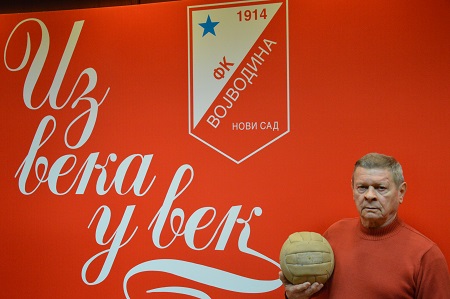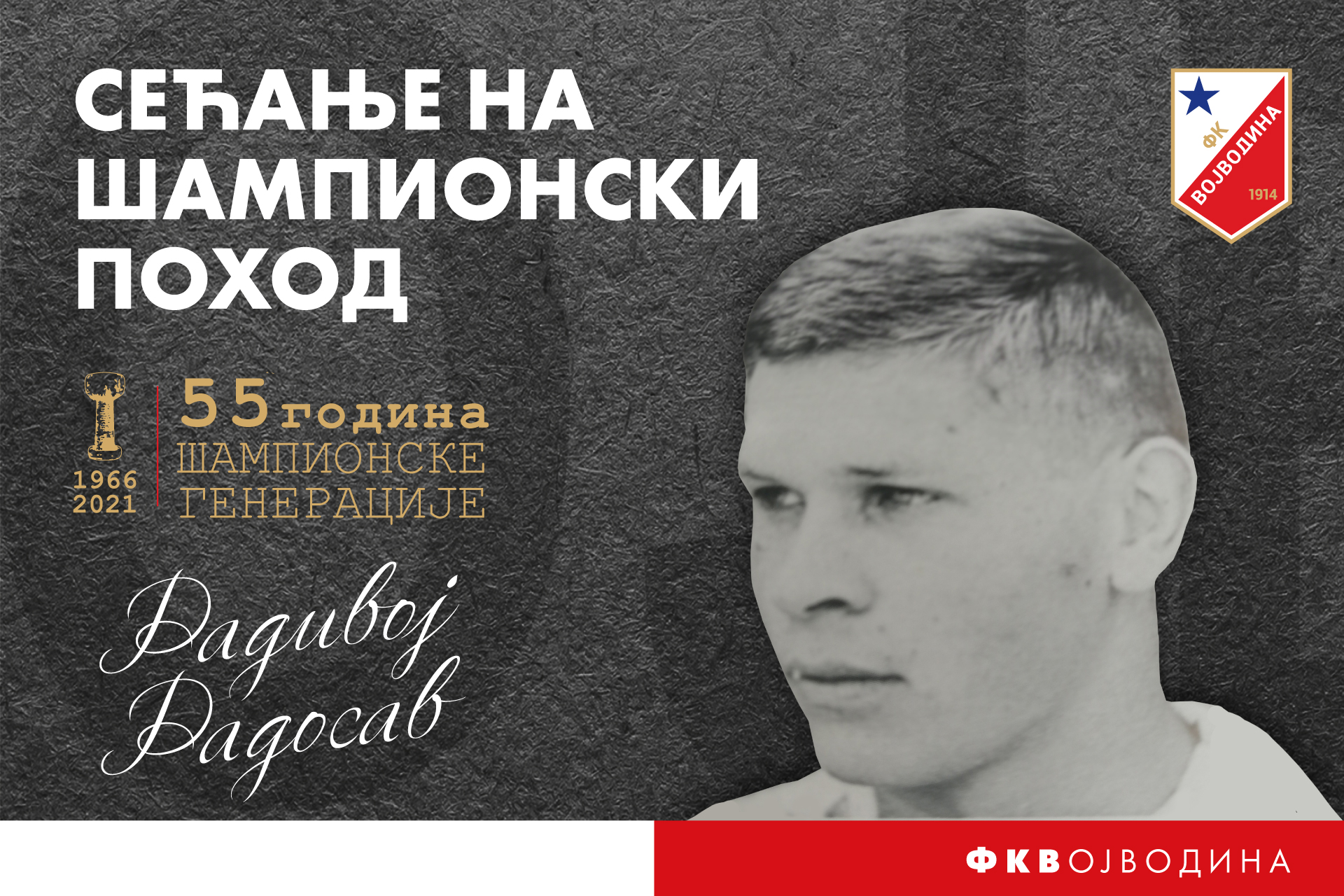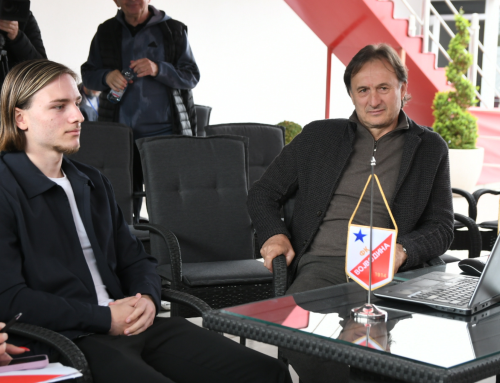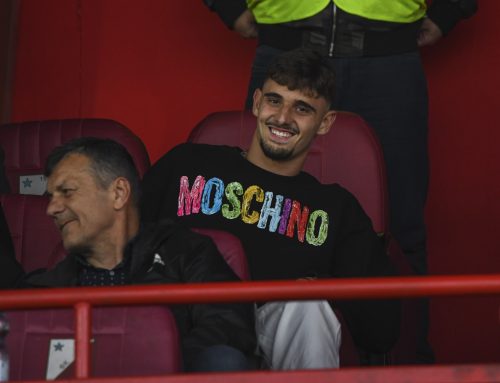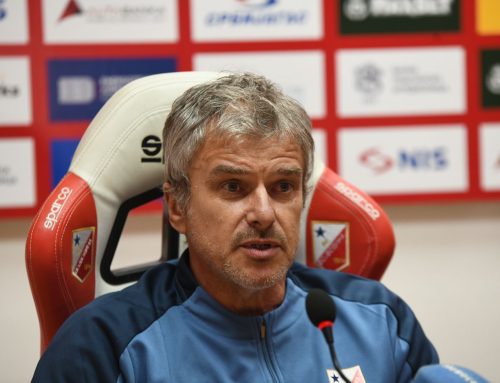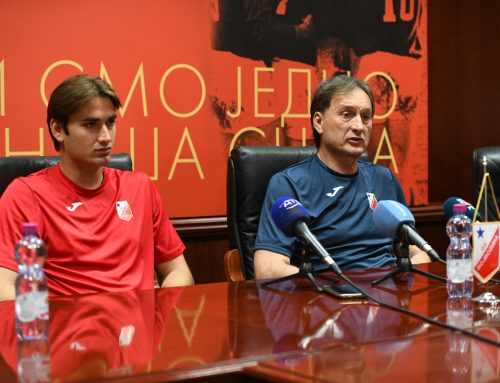The year is 1965. In post-war Yugoslavia, the myth of the “big four” still lives on. Red Star, Partizan, Dinamo Zagreb and Hajduk Split take turns on the championship podium of the then First Federal League of Yugoslavia. During the previous 19 years, not a single team appeared that managed to break the dominance of the “big four”, and then a wonderful generation appeared. In the 1965/66 season, Vojvodina won the championship title ahead of second-placed Dinamo and third-placed Velež.
Last week, the best scorer of the Old Lady, Silvester Takač, told about the memory of the famous season, and now Dr. Radivoj Mika Radosav has also revealed new memories.
He played 25 matches for Voša in European competitions (ECC, Fair Cities Cup, Intertoto Cup), which is especially much if we take into account that at that time all competitions took place according to the knock-out system. In addition to leaving an indelible mark in the most successful period of Vojvodina, Dr. Mika Radosav continued to serve his Old Lady for the next five decades.
Along with Stevan Sekereš and Veljko Aleksić, he is one of the three players from the first champion generation who gain a PhD diploma in football. At the end of his career, Mika opened the famous football school RMR, which is still active, and to this day has produced some of the biggest names of the newer generations of Vojvodina, such as Željko Brkić, Gojko Kačar, Aleksandar Katai, Slobodan Medojević, Ognjen Mudrinski, Marko Poletanović, Dejan Meleg, current goalkeeping coach Milan Jovanić and many others.
This year, FK Vojvodina marks the 55th anniversary of winning its first championship title, and Mika Radosav shared some of the most beautiful memories from his memory drawer.
– A week before the start of the championship, I was unlucky. I suffered a serious injury, ie a broken leg. I was a standard member of the national team in all younger categories, I became the first team player of Vojvodina, I was on a great rise and in the most difficult moment I was hit by that injury. I remember, we played a friendly match in Hungary. On the way back, we stopped in Subotica, where we were hosted by Spartak and in that match the goalkeeper broke my leg. Instead of the main role in the champion team, I got a cast. I haven’t played a single game in the fall. Fortunately, I recovered in the spring and started playing – the story of Dr. Radivoj Mika Radosav begins.
What made that generation of Vojvodina such a good team? What was the way that team played?
– It was a special team, which had everything that was needed at that moment to become a champion. We had a strong and experienced defense – Pantelić, Vučinić, Radović, Nikolić, Sekereš, Brzić. Savić, Trivić and I were in the middle, and we had one Takač in front. We all ran and were hard workers, young and eager to prove ourselves. We were adorned by that desire, but also by the experience and obedience of all the players who cooperated on the pitch. We were like one.
How long has that generation been created and when did you first think that it could become a champion team?
– Everything somehow went its course and things fell into place over time. Savić and Trivić came a year earlier, and then maybe that champion team started to form. We played several tournaments in Hungary and in Novi Sad, and that team played for a year to be compact on the pitch. Simply put, we played dominantly over the other teams. We didn’t have any jumpers, tall players and we couldn’t rely on the game with our head, but we had great combinatorics, we knew how to play differently than what was played at that time. We had a very, very strong lineup. What was especially interesting was the positioning between Savić, Trivić and me. I played “nine” and on paper the most advanced, but on the pitch it was different. Both Savić and Trivić and I played halves and were the most advanced, as needed. When one stays up front, the other two return and close.
Who did you see as the biggest rival in the fight for the title that season and in which cities was it the hardest to win points?
– At that time, no one could stand on our line. We beat Red Star and Partizan in Belgrade, Dinamo in Zagreb, Hajduk in Split. Against the teams of the “big four”, we lost only to Red Star in Novi Sad. The difference in quality was huge, no one was our rival. We somehow solved everything easily. We didn’t defend against any team, we attacked every one in the desire to give them more goals. I also remember the last round when we beat Olimpija in the middle of Ljubljana with 6-0. It was the icing on the cake, to give someone six goals on their pitch.
What was the atmosphere like at the matches of Vojvodina in Novi Sad at that time and how much did the fans help you on the way to the championship title?
– The stadium in Novi Sad was almost always full, we had huge support. In that generation, with Toza and Vujke, Novi Sad expected the title, but did not get it. When we showed up, it somehow felt in the air that we would become champions. The fans went by plane later with us when we played in the European Champions Cup. It was a beautiful period.
How important was Vujadin Boškov for winning the first championship title and what was his greatest contribution to that success?
– Vujke was the right man for organizing the club in the right way. Not so much on the pitch, but that was not his task anyway. Branko Stanković was the main one on the pitch and he is the most deserving for our successes. Stane prepared us physically in the right way. Vujke made Vojvodina a stable and big club, but Stane made that team with his hard work and discipline.
The following season, in the Round of 32 of the European Champions Cup, Vojvodina eliminated Vienna’s Admira, and then met Atletico Madrid in the round of 16, when it won 3-1 in the first match in Novi Sad. What is your memory of the games with Madrid?
– That Atletico Madrid team was too strong. Mendoza was their main player. We have beaten them in the first leg, but despite that, no one could believe that we could endure in the return match. After 2-0, that third game was also supposed to be played, and Vujke was probably counting on us to lose, so he agreed to play in Spain, instead of on a neutral pitch in the Netherlands. Vujke accepted to play in Madrid, but Atletico paid us all the expenses during those seven days until the next game. No one believed that we could go through. However, a miracle happened.
The moment you qualified for the quarterfinals, did you think you could go all the way and win the Champions Cup?
– That thought did not even cross our minds, that is why everything that happened next was a shock. We just enjoyed and played the best we could, but luck was not on our side. We all remember that foul of McNeill over Panta, but the referee didn’t saw it. However, despite all that, our success was huge. It will turn out to be the biggest in the history of the club.
All Celtic players from that season said that Vojvodina was convincingly the best team they played against, even better than Inter, which had won the Champions Cup twice in a row before that and against which Celtic won in the final. How did you react when you found out that Celtic would be your rival in the quarterfinals and how much did you believe that you could knock them out of the competition and qualify for the semifinals?
– We knew that a difficult rival was waiting for us, but we didn’t think much about them. We played great, especially that first game and we really deserved to beat them. I am not surprised when I hear that they considered Vojvodina to be the most dangerous rival for Celtic. In that great Yugoslavia, which had fantastic teams, we were twice as good as everyone in those year and a half.
Can you remember any particularly interesting or funny anecdotes about either of those two games against Celtic?
– That ball we played with in Novi Sad is the most beautiful memory I have. When the referee whistled the end, someone almost hit me with the ball. I ran and took the ball, no one was looking for it and I took it with me. I still have it today, it is the most beautiful memory I could get and I keep it all these years – concluded Dr. Mika Radosav, noting that he will gladly take the ball from the match with Celtic to the official ceremony marking the 55th anniversary of historical title.
